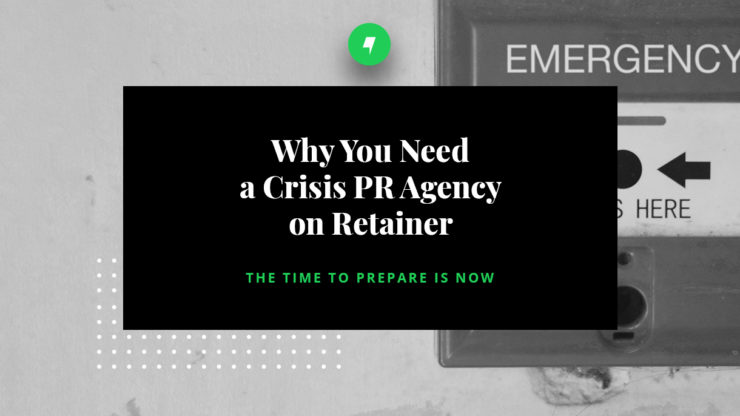Let’s take a moment to delve deep into the dark crevices of “what if.” Stay with me here. Take a moment to let your mind wander to worst case scenarios that could potentially happen at your place of business. Perhaps a rainmaker gets embroiled in an inappropriate workplace relationship? A high profile employee takes to social to trash a client? An unhappy donor threatens to expose questionable usage of funds to the media? It’s uncomfortable, I know. But if you take the time to really think about all of the potential crisis lurking just below the surface I bet you can come up with quite a list.
Now, in each of these scenarios, imagine what your next steps might be. Who are you notifying? What are you saying? What are you not saying? How will you respond on social media? Should you respond on social media? What’s your plan of action?
If at this point you’re sweating slightly, you’re not alone. Most organization don’t have a formal crisis response plan, precisely because it’s uncomfortable to think about. It requires planning for something that will hopefully never happen. It takes time that is not billable and planning involves spending time in an uncomfortable place.
Now here’s another thought to consider. The moment a crisis hits is not the time to start calling around to PR firms asking about their services and pricing. It’s not the time to reach out to your sister’s best friend’s husband who you think is in PR to see if he can help. It’s too late.
The time to prepare is now.
Once you have engaged with a trusted agency partner, you can proceed with the confidence of knowing that a team of professionals is already up to speed on your company, its executives, and other relevant players and details. It’s not necessary to take time to get everyone caught up because it’s already happened. In this scenario the agency can immediately get to work on responding to the situation at hand.
Different crisis agencies work in different ways, but it most cases, if you’ve already contracted with an agency, you will likely have a response plan developed that can immediately begin to be implemented. In addition, it’s likely that your executives have had some version of response training already. At this point, it’s just a matter of reviewing and refining messages based on the specific situation.
Companies who have taken the time to arrange for crisis counsel in advance of a situation tend to fair much better in a crisis situation than those that have not. If you’re ready to discuss crisis preparation services for your company, get in touch with us here.
For more reading, please see How to Pick a Crisis PR Agency That’s Right for You
Posted In Crisis Communications
 Jessica Sharp
Jessica Sharp 